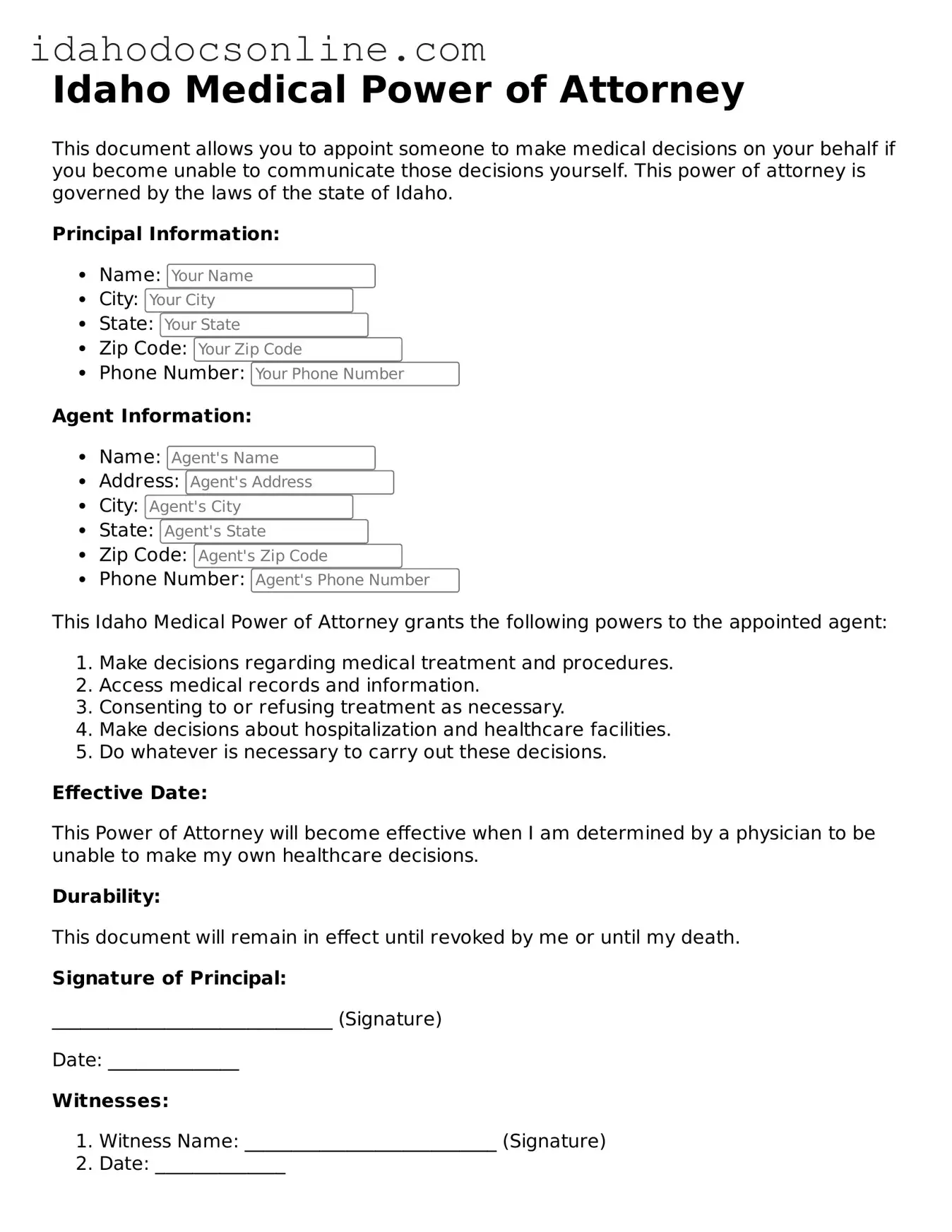Free Medical Power of Attorney Form for Idaho
The Idaho Medical Power of Attorney form allows individuals to designate a trusted person to make medical decisions on their behalf in case they become unable to do so. This important document ensures that your healthcare preferences are respected even when you cannot communicate them. To take control of your medical decisions, consider filling out the form by clicking the button below.
Fill Out Your Document

Free Medical Power of Attorney Form for Idaho
Fill Out Your Document
Need speed? Complete the form now
Complete Medical Power of Attorney online — edit, save, download with ease.
Fill Out Your Document
or
Free PDF
